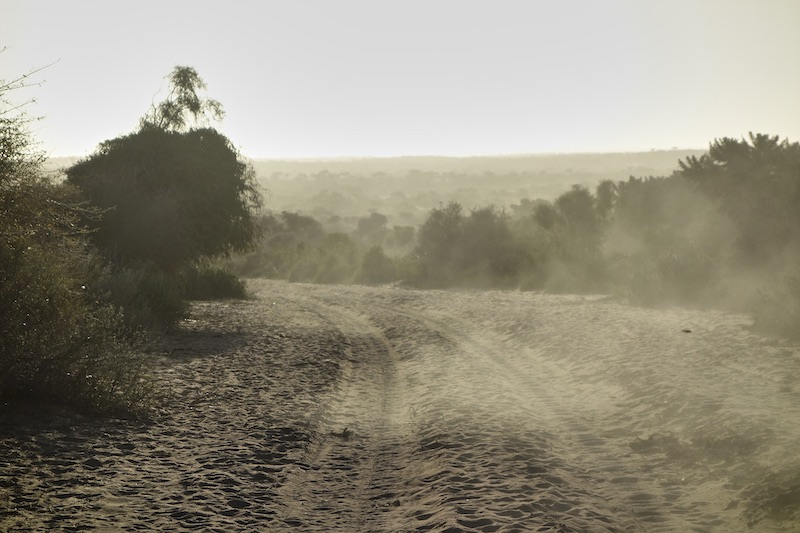dropblog 1 – dropforlife, a start-up
I have always loved water – to be able to swim in our lakes and rivers, to dance and rock through the powder slopes in wintertime, to drink water directly from a well, from a tab, all this and more makes water the treasure on earth. Water is present in our everyday life. Water is life. No water means death.
At times when everything moves fast, when people are hungry for Unicorns1 and success stories of companies that conquer the world in the twinkle of an eye, I ask myself: When is a company no longer a start-up? I believe that dimensions such as time or size cannot be the right criteria to qualify a company as a start-up. It is much more the development stage in the company, the entrepreneurial spirit and the degree of professionalization in the team and in the system.
We have been working for 11 years now. It was originally the business relationship with the entrepreneur George W. in Portland, Oregon (USA) that inspired me to become active myself in this field. As an engineer, George had developed several patents for mechanical and inexpensive water treatment systems that he wanted to bring to developing countries. The idea came to help George bring his technology to developing countries. During my EMBA at the business school IMD in Lausanne, I was able to convince a number of experienced managers to work with me on this idea, including Daniel Rossier. Daniel is still with dropforlife today. Due to 9-11 in New York, George’s priorities had changed. Our intention to help these products become alive was shattered. But we didn’t want to give up and find another way to make our knowledge and experience useful to developing countries, by focusing more on our core competencies rather than a single technology. It took until 2007, when Daniel, Patrick Schnieper and I laid the foundation for the dropforlife idea “Clean Water for everyone” in the beautiful mountain village of Vals. We officially registered the dropforlife foundation in 2010. Many years have passed and the more we learnt about the traditional approach of NGO’s and development aid in general, the more convinced we got that more effective solutions exist. Fundraising with glossy brochures, costly fundraising campaigns, lack of transparency of the organizations, all this was repugnant to us and gave us the strength to continue with the effort to proof that private sector thinking is more effective also in this sector. Today, terms like “social entrepreneurship” and “impact investing” are more widely known, a signal that rethinking has started in society.
It has taken a long time to find projects and partners who share our values and our business approach. Many hours of voluntary work have brought dropforlife to what it is today. We finance and continue to support four projects with around half a million Swiss francs until today. With the experience we gained in projects in Nepal and Madagascar, with the financing of our partners, we are ready to enter a new era – the growth phase. We start to approach financial partners, who are interested in new financing models such as blended finance2, and invest in social entrepreneurship as philanthropic investor3 instead of simply donating.
We see ourselves as part of the future and the emergence of a new understanding of how the industrialized countries and the less developed worlds on this earth can better live together, be more healthy taking responsibility for each other. This development takes time, requires constant learning and adaptation to different needs and circumstances. That is why we are proud to still exist, that we were persistent and still believe in our idea of “Clean Water for everyone”.
Since we started to keep track of our invested time, we have worked an average of almost 60 days a year. That would result in around 660 days, corresponding to three working years of a single person or one working year of three persons. It’s still a start-up.
We are excited to move on.
Andre Guenter, President and Founder
Notes:
1 A unicorn is a privately held startup company valued at over $1 billion. The term was coined in 2013 by venture capitalist Aileen Lee, choosing the mythical animal to represent the statistical rarity of such successful ventures.
Source: Wikipedia
2 Blended finance is defined “as the strategic use of development finance and philanthropic funds to mobilize private capital flows to emerging and frontier markets”, resulting in positive results for both investors and communities. Blended finance offers the possibility to scale up commercial financing for developing countries and to channel such financing toward investments with development impact. As such, blended finance is designed to support progress towards the Sustainable Development Goals (SDGs) set forth by the United Nations. The concept of blended finance can contribute to raising the private financing needed. It was first recognized as a solution to the funding gap in the outcome document of the Third International Conference on Financing for Development in July 2015.
Source: Wikipedia
3 Venture philanthropy is a type of impact investment that takes concepts and techniques from venture capital finance and business management and applies them to achieving philanthropic goals. The term was first used in 1969 by John D. Rockefeller III to describe an imaginative and risk-taking approach to philanthropy that may be undertaken by charitable organizations.
Source: Wikipedia


